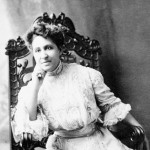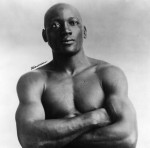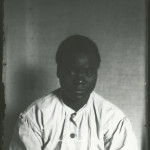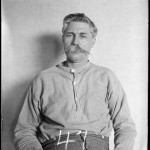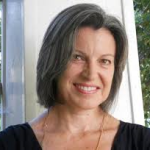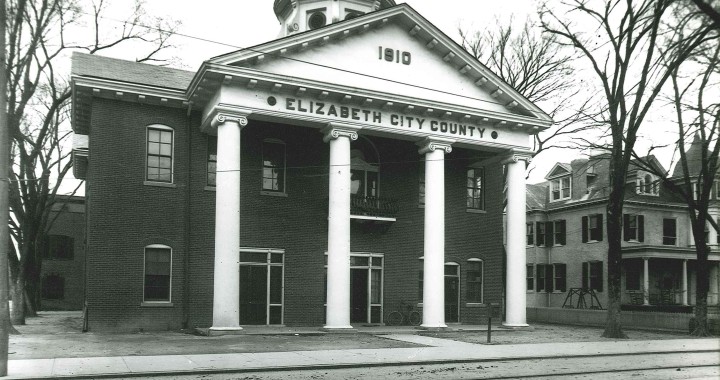When the Eighth Biennial meeting of the National Association of Colored Women’s Clubs (NACWC) convened July 23, 1912, at the Hampton Normal and Industrial Institute, Virgie Christian, convicted of killing her white employer in a house nearby, was scheduled to die in the electric chair at the Richmond state penitentiary in ten days. The convention’s […]
Tag Archives: virginia christian
A Farewell to Arms
Yesterday I was speaking by phone with my publisher, Suzanne La Rosa of NewSouth Books, about the book trailer storyboard I’d sent her. Since my novel Forsaken is set in 1912, photographs are available of real people and places that appear in my fictional account of the trial and execution of the African American girl, […]
Fight of the Century
Jack Johnson was the son of former slaves. When he defeated Canadian fighter Tommy Burns in 1908, he became the first African American heavyweight boxing champion of the world. Johnson was a huge threat to Jim Crow. He was proud of his blackness, a magnificent physical specimen, and worse, attractive to women of all colors. […]
Benjamin Henry Latrobe
Benjamin Henry Latrobe (1764-1820) is best known for the U.S. Capitol in Washington, D.C. But he designed a notorious building earlier in his career—the state penitentiary in Richmond, Virginia, where Virginia Christian died in the electric chair in 1912. Emigrating from London to the United States in 1796, Latrobe landed in Norfolk, Virginia, after a […]
Mug Shot
The African American girl Virginia Christian was photographed once in her life, on June 3, 1912, when she was transferred from the jailhouse in Hampton, Virginia, to the state penitentiary in Richmond. So this day was a fateful one in Virgie’s life a century ago. And we know almost nothing about it. In fact, although […]
Can We Handle Truth?
From the first chapter of the novel Forsaken, its young narrator, newspaper reporter Charlie Mears, is preoccupied with truth. He wonders if the tale an old neighbor spun about the 1831 slave insurrection in Southampton County, Virginia, is true. He even wonders if his own story of Virginia Christian’s trial and execution is true. Sometimes […]
The Sirens’ Song
A goal I set for the novel Forsaken was to have it be as accurate historically as I could make it. This became an obsession. I’d caution anyone interested in writing historical fiction against the sirens’ song of research. There’s so much information! As writers, we want to listen to what history has to say. […]
A Crisis Somewhat Akin
Found guilty of first-degree murder in the courtroom shooting in Hillsville, Virginia, Floyd Allen was sentenced to death by electrocution in May 1912. Virginia Christian’s murder trial took place a month earlier. Her lead attorney, George Washington Fields, a former slave, was blind. Despite the disability, he was masterful at interrogating witnesses. J. Clay Smith, […]
Claudia Emerson (1957-2014)
Despite the fact that her work appeared in many magazines and journals, including the New Yorker and the Southern Review, and that she was a poet laureate of Virginia and a Pulitzer Prize winner, I’d never heard of Claudia Emerson till I read her obituary in the University of Virginia Magazine. True, I’d graduated from […]
April 8
On this day in 1912 at 10 o’clock in the morning, the murder trial of sixteen-year-old Virginia Christian opened in the Elizabeth City County Courthouse, Hampton, Virginia.
An African-American girl, “Virgie,” as she was called, was convicted of killing her white employer, Ida Belote, a fifty-one-year-old widow.
Virgie died in the electric chair at the state penitentiary in Richmond the day after her seventeenth birthday. She is the only female juvenile executed in Virginia history.
In February 2016 NewSouth Books of Montgomery, Alabama, will publish Forsaken, my first novel, which opens with the trial and execution of this girl and dives deep into the poisonous waters of Jim Crow Virginia.
For me, the publication of the book will be the fulfillment of a dream born when I was Virgie’s age. But like the novel, the achievement is bittersweet.
I’ll be sixty-five years old when Forsaken is released. I’ll be a debut novelist who just enrolled with Medicare. Many of the family members, school teachers, and college professors I most would have wanted to see its publication are long since gone.
What’s more, any sensible reader might reasonably inquire, “What could a sixty-five-year old white man have to say about a sixteen-year-old black girl who lived during the rise of racial segregation in Progressive-era Virginia?”
In the weeks ahead, please return to this site. I’ll do my best to answer that question and others. I’ll tell you about the creative process I followed to research and write the book and provide background on the history and politics of the times, times fraught with wrenching change, blighted hope, and sometimes brutal cruelty.
I’ll fill in the lives of the historical figures I came across in my research, figures who absolutely would not let me turn away, figures I wanted to bring to life in hopes they might help us today live lives of understanding, tolerance, and empathy. The events in Forsaken are tragic, but the story is one of redemption and hope.
